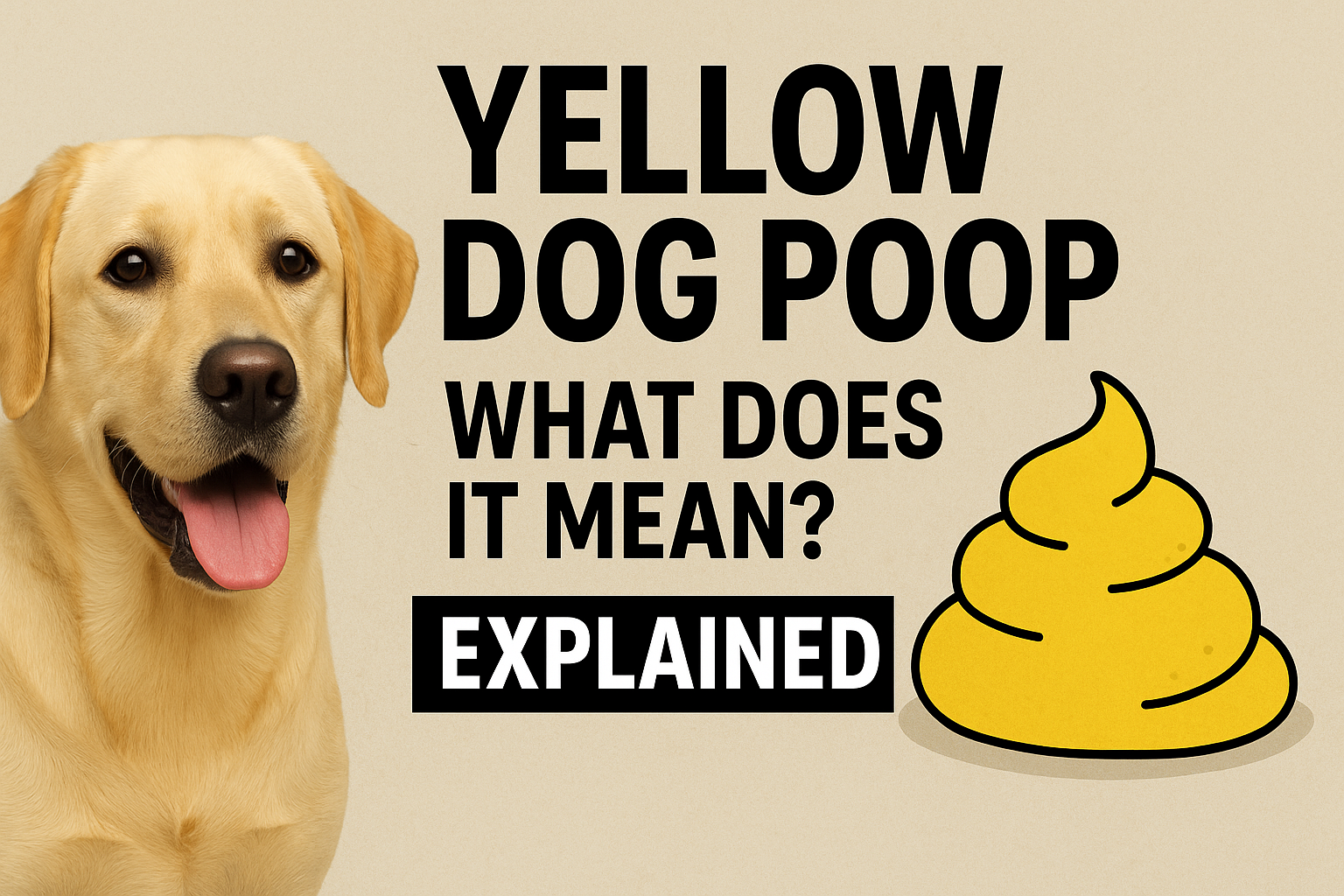Yellow Dog Poop: What Does It Mean? Explained
If you’re a dog owner, you’ve probably had moments when you’ve taken a closer look at your pup’s poop and thought, “That doesn’t look right.” While it’s not the most
This article clarifies what yellow dog stool is, common reasons, when to freak out, and how you can assist your pet.
Why Poop Color Matters to Your Dog’s Health
Bile helps to digest fats and produce stool’s normal brown color. Poop turning yellow typically means that bile is not being able to break down or food is moving through the gut too quickly.
This could be temporary, but it could also be an indicator of something more severe. This is why noticing color shifts early on is important.
Typical Causes of Yellow Dog Stools
1. Sudden Diet Change
Changing a dog’s diet too quickly will cause temporary upset stomachs that are often accompanied by softer, yellow stools.
Tip: Always transition to a new food more than 7–10 days.
2. Food Sensitivity or Intolerance
A few dogs don’t digest certain proteins, grains, or additives well. When your dog’s body reacts poorly, you might see yellow, loose stools with gas, bloating, or itchy skin.
3. Too Quick of a Digestion
If food moves too fast through the system, bile doesn’t get to finish breaking it down. This leaves stool appearing yellow rather than brown.
4. Parasites
Intestinal parasites will cause yellow diarrhea, especially in dogs that have been in contact with infected soil, water, or other animals.
5. Liver or Gallbladder Issues
When the liver is not producing enough bile or if there is a blockage in the gallbladder, stool may become pale yellow or gray.
6. Pancreatic Disorder
Conditions likes exocrine pancreatic insufficiency reduced the enzymes needed for digestion which primarily cause greasy yellow stools.
7. Stress or Anxiety
Environmental and routine or household changes may upset your dogs digestive equilibrium and sometimes create temporary yellow poops.
Texture and What It Is
Color isn’t the sole clue — texture can be used to identify the reason behind yellow stool.
| Texture | Tip Possible Cause |
|---|---|
| Yellow & runny | Food intolerance, infection, parasites |
| Yellow & greasy | High-fat diet, pancreatic disease |
| Yellow & mucousy | Abdominal inflammation |
| Yellow but firm | Mild diet change or early bile imbalance |
When to Be Concerned About Yellow Dog Stool
Yellow stool isn’t always emergent, but you should call your vet if you notice:
- Yellow stool for more than 48 hours
- Blood in stool (red or black)
- Vomiting or loss of appetite
- Weight loss or weakness
- Diarrhea causing dehydration
What to Do If Your Dog’s Stool is Yellow
1. Review Diet and Treats
Think abouts a recent change in your dogs diet or treats. New protein high calorie treats or table food could be the causes.
2. Maintain Your Dog’s Hydration
Diarrhea can lead to dehydration easily, so always keep fresh water available.
3. Attempt a Temporary Bland Diet
Eating plain boiled rice and chicken for a day or so may calm an irritated digestive tract.
4. Watch Closely
Observe changes in stool color, texture, and frequency.
Prevention Tips
- Add new foods slowly
- Avoid fatty human foods on your dog’s table
- Make regular wellness visits
- Use parasite preventatives
- Supplement with probiotics with your vet’s approval
Treatment Options
Treatment depends on the cause:
- Dietary: Alter feeding routine or alter proteins
- Parasites: Deworming medication
- Infections: Anti-parasitics or antibiotics given by the vet
- Liver or pancreatic issues: Medications and special diets
- Stress: Calming supplements and consistency in routine
FAQs On Yellow Dog Poop
1. Is yellow poop ever normal?
Yes, if an occasional event, and your dog is otherwise okay.
2. Does yellow diarrhea mean infection?
Not always — it could be diet or mild digestive upset.
3. Can worms turn poop yellow?
Some parasites can cause yellow loose stool.
4. Do I have to change my dog’s food right away?
Not without a call to your vet — the cause might not be due to food.
5. What need to see a vet
If it lasts more than 48 hours or is also accompanied by vomiting, weakness, or blood.
6. Does stress lead to yellow poop?
Yes, stress may speed up digestion, which can affect stool color.







